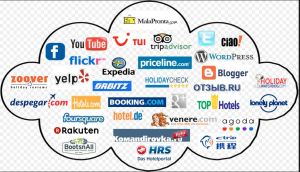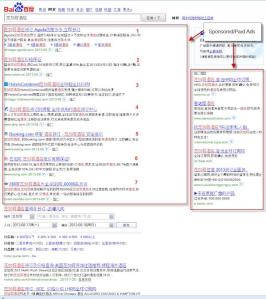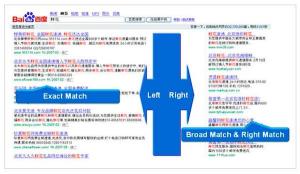“Great Scott……”, if this is going to be successful in France it will turn the whole OTA vs Direct Booking on its head. Have a look at the article by Tamara Thiessen from HotelNewsNow.com
GLOBAL REPORT—Some have declared it the equivalent of the French Revolution for hoteliers, while others have called it an all-out war. A new law swept in 9 July means French hoteliers can now advertize lower prices for rooms across all distribution channels—including their own websites—than those offered to online travel agencies.
The French National Assembly brought rate parity to a grinding halt by adopting the final vote, which removes the clauses from contracts between hoteliers and OTAs.
The so-called “Macron law”—named after France’s Minister of Economy, Industry and Digital Affairs, Emmanuel Macron—is designed to invigorate the French economy by removing obstacles to growth and competition. The law states that when entering into contracts with OTAs, “the hotelier is free to consent to any customer discounts or tariff advantage of any kind whatsoever.”
The decision caps off a two-year battle led by AccorHotels and hotel employer union UMIH to remove the so-called “pricing parity clause” enforced by France’s three largest OTAs—Booking.com, Expedia and HRS—which forbid hoteliers to offer lower prices to other online booking firms or undercut the rates on their websites.
HOTREC, the European hospitality association, in a news release described the French vote as “another crucial step for hotels in Europe to regain control over their offer.”
Some 70% of hotel bookings in Europe are made through such online booking platforms, according to the French Competition Authority, which engineered much of the change.
The vote builds on the groundwork laid by the authority in recent months, including the April announcement that Booking.com agreed to remove the parity clause from contracts during the next five years. Under that arrangement, hotel price freedom was only partial, particularly for online sales.
The announcement included provisions in Sweden and Italy as well, where anti-competition authorities have made similar moves against Expedia.
“With more than 35% and mounting reservations made online, that was giving the jackpot to Booking.com,” the UMIH said in a June news release.
The new law goes much further to enforce rate parity for all distribution channels.
“It is a real revolution that is underway for the French hotel industry and for our customers,” said Roland Héguy, president of UMIH in a news release. “After the decision of the Competition Authority, this vote will contribute to the establishment of a renovated contractual framework to restore conditions of a commercial relationship based on trust between hotels and booking sites in the interest of consumer.”
Restoring the level playing field
While rate parity was aimed at creating a level playing field, many hoteliers said it gave OTAs the upper hand.
“The hotel no longer had control of its offer and its management,” Héguy said in a news release, accusing Booking.com of anti-competitive conduct that resulted in lower margins for hoteliers. OTAs had gained an unfair advantage, he said, due to a toughening up of contractual clauses “which due to the market structure, hotels are not in a position to refuse.”
As they went into battle head on with the OTAs, Accor chiefs including CEO Sebastien Bazin have also repeatedly criticized Booking.com.
“There will be no auctioneering (of room rates) on the site,” said Deputy CEO Vivek Badrinath at a news conference in June of Accor’s new booking platform for independent hotels. “We have committed ourselves against Booking.com’s abusive practices, so we have to be consistent.”
Those days are over, said Laurent Duc, the UMIH’s hotel branch president and GM of the 3-star Hôtel Ariana near Lyon, France.
“The hotelier has regained total power over the price, and it’s now the hotel which will dictate the terms,” Duc said.
Hoteliers have a lot to learn to benefit from the new rules in which OTAs no longer have a monopoly on best rates, he added. “It’s not the end of the platforms, but OTAs and hotels are finally embarking on a more equal, collaborative relationship.”
“In my opinion, if (Booking.com) says the decision is bad for independent hotels, then the reality is precisely the opposite,” said Jerome Fournel, GM of the 20-room independent Hôtel Le Manoir Saint-Michel in Brittany, France.
Booking.com declined to comment. Expedia could not be reached by press time.
Pascal Droux from the lake chateau hotel Les Tresoms in Annecy, France, is president of FairBooking, set up by hotel owners in 2013 as an alternative to OTAs. He said hoteliers are still unclear on the full implications of the law. But whatever they do, hoteliers must not accept rate parity in contracts or unlimited use of brand names in new contracts with booking firm, he said.
“It’s vital that the negotiations are carried out by an independent union, especially for us independent hotels. That (brandjacking) is still a sticking point; the goal for the OTA has been that customers do not arrive on our hotel website,” Droux said.
A grey area
With Booking.com and Expedia still able to insist in existing contracts that hoteliers do not offer discounted rates on their own websites, things are far from clear.
Lawyer and regulatory affairs specialist Jackie Grech said despite the huge gain for French hotels, the legal issues surrounding it remain “a huge grey area,” particularly as the country’s judicial and legislative branches came to slightly different conclusions.
A judicial ruling in France banned rate parity for small hotels in May. The legislative ruling on 9 July would ban it across all hotels, regardless of size.
“Parity has been declared void in contracts with small hotels—but at the same time Booking.com wants to keep enforcing parity in a limited way, insisting that the hotel offers Booking.com the lowest rate if it’s on the hotel’s website itself, but it doesn’t have to be the lowest rate they offer. For example, (a hotelier) can offer €100 on their website, €100 to Booking.com and €50 on Expedia.”
While hoteliers are triumphing, not so the OTAs, some are predicting a rate war. Grech snubs such warnings.
“Most hotels are going to hesitate to give other OTAs a lower rate than Booking.com because it devalues their own business, so even though the court has made a ruling I don’t think they are going to take immediate advantage of it,” she said.
Grech believes once the summer lull in France is over, however, hoteliers will start to firm up their strategies and roll out new pricing policies.
“I think OTAs will maintain their predominance for some time yet, but at the same time hotels will develop other major alternatives. … Big brands like Accor and (Marriott International) are all trying to find an alternative solution because they can’t sit around and wait five years to see what happens. They will soon be starting to find a solution that works for them, and invest more in the way they get their bookings.”
On the other hand, she said they can’t burn their bridges with OTAs either—at least not for the time being.
Source: Tamara Thiessen from HotelNewsNow.com

















